
NATION
Scope & Guideline
Empowering critical discourse in Social Sciences.
Introduction
Aims and Scopes
- Water Desalination Technologies:
The journal extensively covers various desalination technologies, including reverse osmosis, membrane distillation, and capacitive deionization, focusing on their design, performance, and applications. - Membrane Materials and Fabrication:
Research on the development and modification of membrane materials, such as polyamide, graphene-based membranes, and composite materials, is a core focus. This includes innovative fabrication techniques and surface modifications to enhance performance. - Environmental Impacts and Sustainability:
The journal emphasizes the environmental aspects of desalination processes, including life cycle assessments, energy consumption, and the exploration of renewable energy sources to power desalination systems. - Resource Recovery and Waste Management:
Research aimed at recovering valuable minerals and reducing waste from desalination processes is highlighted, including studies on brine management and the circular economy. - Modeling and Simulation Techniques:
The use of computational modeling and simulation to predict and optimize the performance of desalination systems is a key area of interest, providing insights into process dynamics and efficiency.
Trending and Emerging
- Nanomaterials and Advanced Membranes:
There is a growing trend towards the use of nanomaterials and advanced composites in membrane fabrication, which enhances performance in desalination processes by improving selectivity, permeability, and fouling resistance. - Integration of Renewable Energy Sources:
Research increasingly focuses on integrating renewable energy solutions, such as solar and wind energy, into desalination systems to improve sustainability and reduce operational costs. - Hybrid Desalination Systems:
The development and optimization of hybrid systems that combine multiple desalination technologies, such as reverse osmosis with forward osmosis or membrane distillation, are gaining attention for their potential to enhance overall efficiency. - Smart Technologies and Data-Driven Approaches:
The application of machine learning, artificial intelligence, and data-driven methodologies for optimizing desalination processes and predictive modeling is on the rise, reflecting advancements in computational techniques. - Environmental and Societal Impacts:
There is an increasing emphasis on the environmental and social implications of desalination technologies, including studies on public perception, policy implications, and the sustainability of water resources.
Declining or Waning
- Traditional Thermal Desalination Methods:
There has been a noticeable decline in the publication of papers focused on conventional thermal desalination techniques, such as Multi-Effect Distillation (MED) and Multi-Stage Flash (MSF), as newer, more efficient technologies gain traction. - Single-Use Membrane Technologies:
Research on single-use or disposable membrane technologies has decreased as the industry moves towards more sustainable and reusable solutions, reflecting a broader trend towards reducing waste in desalination. - Basic Research on Salt Rejection Mechanisms:
Papers focusing solely on the basic mechanisms of salt rejection in membranes without exploring practical applications or improvements in efficiency are becoming less common, as applied research takes precedence.
Similar Journals

Results in Engineering
Transforming Challenges into Breakthroughs in EngineeringResults in Engineering is an esteemed open-access journal published by Elsevier, dedicated to advancing the field of engineering through high-quality, innovative research. Since its inception in 2019, this journal has rapidly established itself within the academic community, evidenced by its prestigious Q1 ranking in the Engineering (miscellaneous) category for 2023 and a remarkable ranking of #54 out of 307 in General Engineering according to the Scopus database, placing it in the 82nd percentile of its category. Located in the Netherlands, Results in Engineering provides a global platform for researchers, professionals, and students to disseminate their findings and foster collaboration across diverse engineering disciplines. The journal's commitment to open access ensures that valuable research is accessible to a wider audience, fostering innovation and knowledge sharing. With a progressive approach to publication, Results in Engineering seeks to enhance the engineering landscape by publishing cutting-edge studies that address contemporary challenges and solutions in the field.
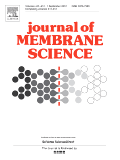
JOURNAL OF MEMBRANE SCIENCE
Elevating Knowledge in Membrane ApplicationsJOURNAL OF MEMBRANE SCIENCE, published by Elsevier, is a premier academic journal dedicated to advancing the field of membrane technology and its applications in various scientific domains. With its ISSN 0376-7388 and E-ISSN 1873-3123, this journal is recognized for its significant contributions to the study of filtration, separation processes, and materials science. As of 2023, it boasts an outstanding impact factor, ranking in the Q1 quartile across several categories including Biochemistry, Filtration and Separation, and Physical and Theoretical Chemistry, making it a leading resource in these fields. Researchers benefit from its rigorous peer-review process and the inclusion of breakthrough research, critical reviews, and cutting-edge developments. With converged years spanning from 1976 to 2025, the JOURNAL OF MEMBRANE SCIENCE stands out as an essential platform for professionals, students, and academics eager to explore innovative solutions and findings in membrane science. Although it operates under a traditional access model, its wealth of knowledge and global reach ensure that it remains an indispensable asset for anyone engaged in this dynamic area of study.

Membranes
Transforming challenges into solutions through membrane expertise.Membranes, published by MDPI since 2011, is an esteemed open access journal dedicated to advancing the field of membrane science and technology. With an E-ISSN of 2077-0375, this journal serves as a vital platform for researchers and professionals from various disciplines such as chemical engineering, filtration, and separation technologies. Holding a commendable Q2 ranking in Chemical Engineering (miscellaneous) and notable placement in filtration and process chemistry categories, it provides a robust framework for researchers to disseminate groundbreaking findings. The journal's commitment to open access ensures a wide-reaching impact, allowing for unrestricted sharing of high-quality research that addresses the critical challenges and innovations in membrane technology. Situated in Switzerland, Membranes is not only a cornerstone for academic inquiry but also a leading resource for students and industry experts seeking cutting-edge developments in their fields.

Journal of Energy Storage
Transforming the landscape of energy storage systems.Welcome to the Journal of Energy Storage, a premier publication dedicated to advancing the science and technology of energy storage systems. Published by ELSEVIER in the Netherlands, this esteemed journal boasts a significant impact in the field, categorized as Q1 in Electrical and Electronic Engineering, Energy Engineering and Power Technology, and Renewable Energy, Sustainability and the Environment for 2023. With a commitment to disseminating high-quality research, the journal provides a platform for the latest innovations and findings, covering a broad spectrum of topics from battery technologies to thermal energy storage. As a must-read for researchers, professionals, and students alike, the Journal of Energy Storage facilitates vital discussions that shape the future of sustainable energy practices. While presently offering select access options, the journal continues to expand its reach and influence within the academic community, encouraging submissions that drive forward our understanding of energy solutions. Discover the forefront of energy storage research and contribute to a world increasingly reliant on efficient energy management.

Clean Technologies
Exploring Pathways to Environmental ExcellenceClean Technologies, published by MDPI in Switzerland, is a pioneering open-access journal that has garnered significant recognition since its inception. Focusing on innovative solutions and practices for sustainability, it aims to serve the interdisciplinary field of clean technology while addressing pressing environmental challenges. With an impressive impact factor evidenced by its Q2 ranking in Environmental Science (miscellaneous) and Q3 in Global and Planetary Change, as well as a Scopus rank of #43 among a competitive pool of journals in these fields, Clean Technologies is positioned as a vital resource for researchers, professionals, and students alike. As a forward-thinking platform with open access since 2018, the journal emphasizes the dissemination of high-quality research, fostering collaboration and innovation in the quest for sustainable development. Located at ST ALBAN-ANLAGE 66, CH-4052 BASEL, SWITZERLAND, it also provides a comprehensive digital archive that allows for easy access to cutting-edge studies and findings relevant to global sustainability efforts.

Membranes and Membrane Technologies
Unlocking Potential with Cutting-Edge Membrane SolutionsMembranes and Membrane Technologies is an innovative journal dedicated to advancing the fields of chemical engineering, chemistry, and materials science through the exploration of membrane science and technology. Published by PLEIADES PUBLISHING INC, this journal offers vital insights into the efficient design, synthesis, and application of membranes across diverse industries, aiming to enhance water treatment, energy generation, and various separation processes. With an ISSN of 2517-7516 and an E-ISSN of 2517-7524, the journal is recognized for its impactful contributions, holding a Q3 category ranking in multiple fields as of 2023. Researchers and professionals will find a wealth of open-access articles that promote the sharing of knowledge and foster collaboration in this rapidly evolving domain. As it converges its mission from 2019 to 2024, Membranes and Membrane Technologies remains an essential resource for those committed to pushing the frontiers of membrane research and application.
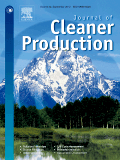
Journal of Cleaner Production
Elevating Standards in Environmental Science and PracticeThe Journal of Cleaner Production, published by Elsevier Science Ltd, is a leading interdisciplinary journal dedicated to the development and dissemination of knowledge on environmental sustainability and cleaner production practices. With an impact factor that reflects its high relevance in the field, the journal is recognized as a Q1 publication in key categories including Environmental Science, Industrial and Manufacturing Engineering, Renewable Energy, and Strategy and Management as of 2023. This prestigious journal has been a platform for groundbreaking research since its inception in 1993 and continues to shape the dialogue around sustainable practices in various sectors. Researchers and professionals across disciplines can access its wealth of insights, which are critical for driving the transition towards more sustainable production and consumption models. The journal’s rigorous peer-review process ensures that only high-quality research is published, making it an essential resource for academics, industry leaders, and policymakers committed to advancing cleaner production methodologies.
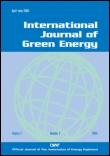
International Journal of Green Energy
Advancing sustainable solutions for a greener future.The International Journal of Green Energy is a premier publication that plays a pivotal role in the field of renewable energy and sustainability. Published by Taylor & Francis Inc, this journal, with ISSN 1543-5075 and E-ISSN 1543-5083, has established itself as a crucial platform for sharing innovative research and developments from 2005 to 2024. With a commendable Q2 ranking in the category of Renewable Energy, Sustainability and the Environment, it ranks 100 out of 270 in Scopus, positioning itself in the 63rd percentile of its field. The journal is dedicated to advancing knowledge and fostering dialogue around green technologies and sustainable practices, providing invaluable insights for researchers, industry professionals, and students alike. Although it does not offer open access options, the journal's commitment to rigorous peer review ensures that only high-quality research is published, making it an essential resource for those seeking to explore and understand the complexities of green energy solutions.
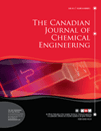
CANADIAN JOURNAL OF CHEMICAL ENGINEERING
Exploring Innovations in Chemical EngineeringCanadian Journal of Chemical Engineering, published by Wiley, stands as a pivotal platform in the field of chemical engineering, addressing a myriad of topics essential for researchers, professionals, and students alike. With ISSN 0008-4034 and E-ISSN 1939-019X, this journal has been a cornerstone of chemical engineering scholarship since its inception in 1958 and continues to provide valuable insights through its rigorous peer-reviewed articles. The journal is ranked in the Q2 category of the Scopus quartile rankings, reflecting its influence and relevance within the chemical engineering community, with a notable position of #137 out of 273 in the general chemical engineering field. Although it does not offer open access options, its comprehensive coverage of contemporary research and applications solidifies its status as a vital resource for advancing knowledge and innovation in chemical engineering.
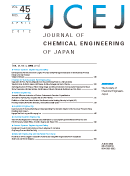
JOURNAL OF CHEMICAL ENGINEERING OF JAPAN
Advancing Chemical Innovation in JapanJOURNAL OF CHEMICAL ENGINEERING OF JAPAN is a distinguished academic publication in the field of chemical engineering and chemistry, published by Taylor & Francis Ltd. With its ISSN 0021-9592 and E-ISSN 1881-1299, this journal has been a vital resource for researchers and practitioners since its inception in 1968 and continues to provide essential insights and advancements through 2024. The journal operates under an Open Access model as of 2023, promoting wider dissemination of research findings and encouraging collaboration within the global scientific community. Currently categorized in the Q4 quartile for both Chemical Engineering and Chemistry (miscellaneous) in 2023, it ranks within the lower percentiles of its respective fields, offering a platform for emerging scholars to publish their work and gain visibility. As part of Japan's academic landscape, it addresses numerous aspects of chemical engineering, fostering innovation and technical development that contribute to the industry's growth. Engaging with this journal is paramount for those looking to stay informed on the latest research trends and applications in chemical processes.